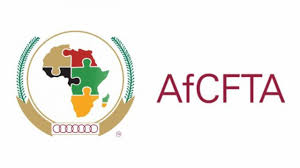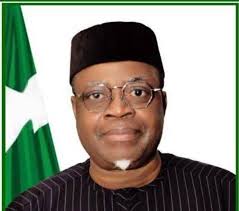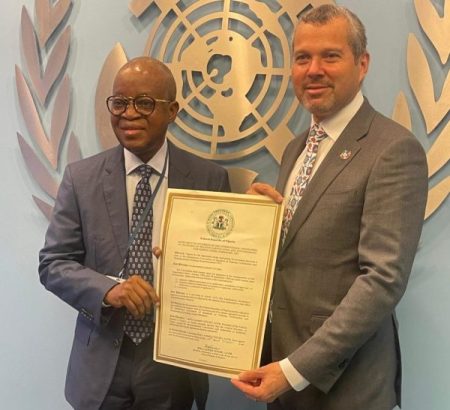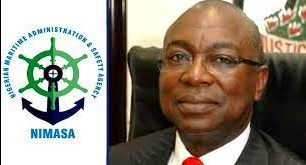 – As Abuja MoU say 100 vessels needed for integrated trade
– As Abuja MoU say 100 vessels needed for integrated trade
Esther Oritse
Lagos — Secretary-General Abuja Memorandun of Understanding, MoU, Captain Sunday Umoren has said the African Development Bank has commenced talks with various stakeholders connected with the African Continental Free Trade Agreement, AfCTA with a view to supporting the initiative through the acquisition of vessels from African shio owners.
Speaking at the quarterly meeting of the Nigerian Association of Master Mariners, NAMM, in Lagos,Umoren disclosed that the Bank has held top level discussions with interested parties noting that plans for such vessels acquisitions was near completion.
The former ship Captain also said that The African Continental Free Trade Area presents an extraordinary platform and opportunity to breathe life into the almost non-existent or comatose intra-African trade with consequent positive economic development.
He said: ”Trade can only thrive when the commodities can be moved (distributed) from the seller/ producer/manufacturer to the demander /consumer/user. This movement involves freight transportation by various modes including vehicles, rails, ships, aircrafts, and trucks.
“Africa is blessed to the extent that all the modes of transportation can be employed in the movement of good within its borders. With the many littoral countries in Africa (38 coastal and island states, 13 million square kilometres of Exclusive Economic Zones, and over 47,000 km of coastline), maritime sector / transport will present unimaginable potential to facilitate trade and regional integration across the continent
“AfCFTA is aimed to create a single continental market for goods and services in Africa and boosting intra-African trade volumes significantly and this will be achieved by reducing problems and challenges relating to trading among the members which erstwhile have had different and vary regulations often with protectionist mentality.
“AfCFTA includes 55 countries, which are all members of the African Union (AU). Of the 55 countries, 54 have signed the Agreement (exception of Eritrea) and only 47 have ratified it so far.
“On estimate, this covers 1.2 billion people with a $3-trillion combined GDP. This is a sizeable economic bloc in the world and is expected to steadily increase through 2050. However, the share of Africa in global trade is about three per cent (AU),
“Transportation and movement of goods can also be carried out through road haulage though with protracted challenges including bad road network, numerous check points, old and rickety haulage trucks, lack of rail links and numerous challenges that time will not permit me to list. With the afore listed challenges, Maritime transportation offers littoral countries the much-needed succour and salvation by offering the vital link between nations thus allowing goods to be transported across rivers, oceans and continents.
“Shipping and generally maritime transportation has been the main bane of Globalization and scholars as well as business gurus and Association of African ship owners have all agreed to the fact that AfCTA will present a great opportunity for the growth of Blue Economy in Africa.
“African Union has in its report indicated that intra‐African trade stands at around 10 per cent compared to 60 per cent, 40 per cent, 30 per cent intra‐regional trade of Europe, North America and ASEAN respectively. It is presumed that AfCTA will like improve the ratio to 20 per cent through cross‐border trade.
“The United Nations Economic Commission for Africa projects that implementing the AfCFTA could double maritime freight from 58 to 131.5 million tons. With the current tonnage, the surge in demand would require much more tonnages and thus substantial investment in maritime infrastructure and services.”
Umoren also said that AfCTA will need about a 100 vessels to jump-start the intra-Africa integrated trade.
Confirming the development, Ms. Funmi Folorunsho, Secretary General, African Shippers Owners Association, said that discussions in that regards have been going on.



